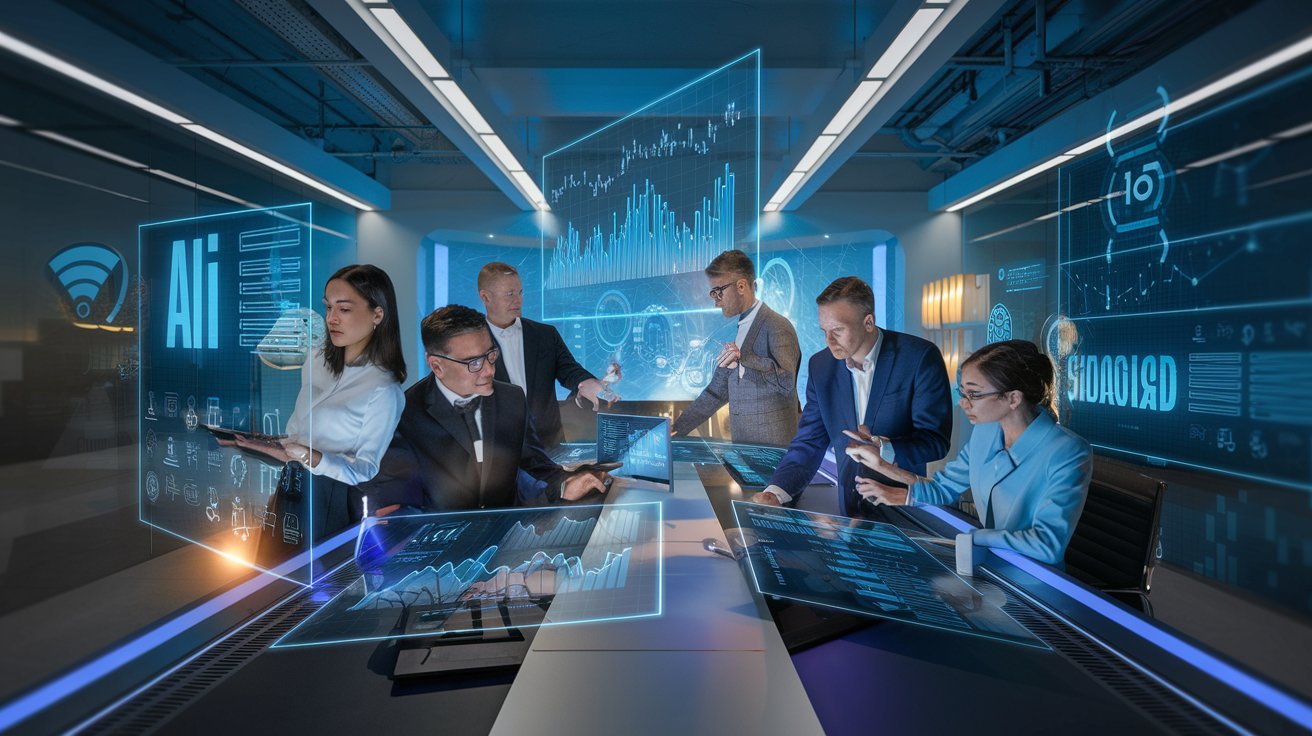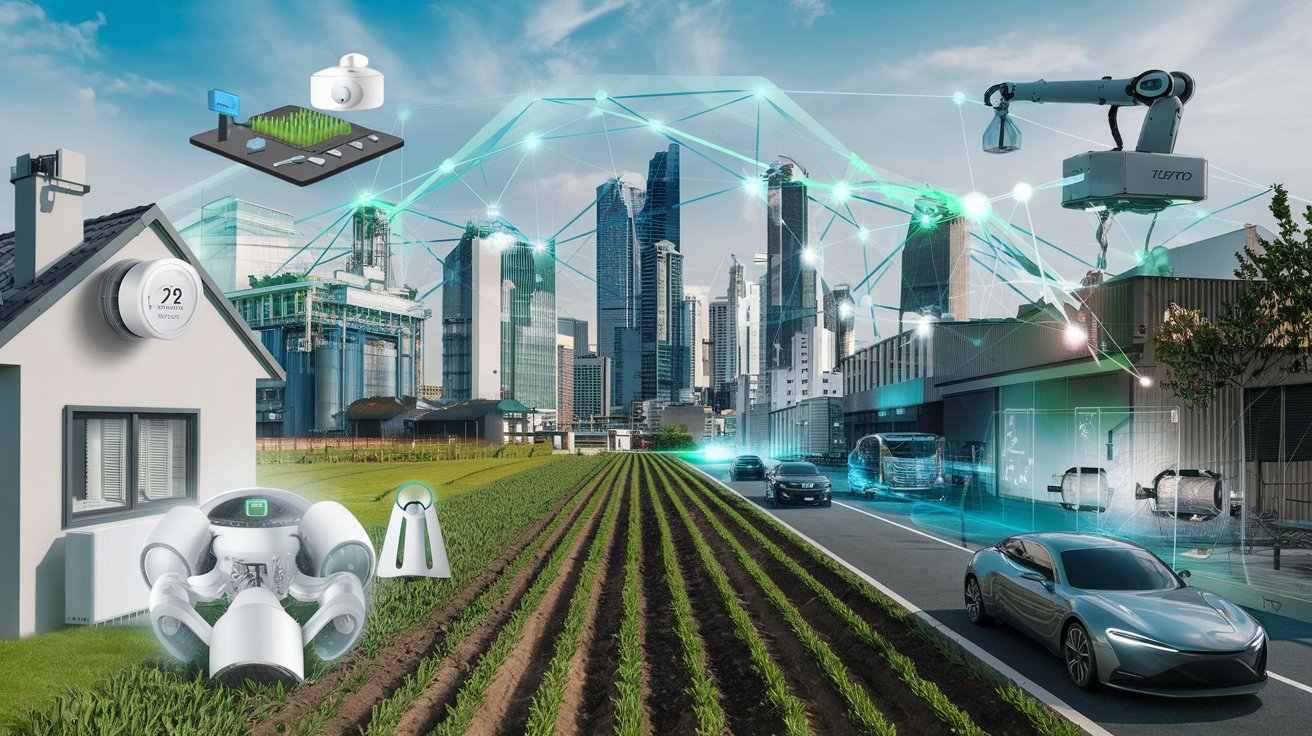In today’s fast-evolving business landscape, innovation and technology are at the forefront of transformation, enhancing productivity, efficiency, and competitive advantage. In this space, I will guide you through the five key areas shaping our future and reveal how to leverage them effectively for growth and success. From Artificial Intelligence (AI) and Machine Learning (ML) to Biotechnology and Sustainability Technology, each offers unique potential for decision-making, automation, and sustainability.
Artificial Intelligence & Machine Learning
Overview of AI & ML
Artificial Intelligence (AI) and Machine Learning (ML) are revolutionizing how businesses operate. AI enables machines to mimic human intelligence, while ML allows systems to learn from data and make informed predictions. Together, they empower industries to automate repetitive tasks, optimize processes, and make faster, more accurate decision-making.
Impact on Decision-Making and Automation
AI & ML contribute to several crucial business aspects:
- Predictive Analysis: By analyzing past data, AI algorithms can predict customer trends and market shifts, giving businesses an edge in strategic planning.
- Customer Experience: AI-powered chatbots and virtual assistants streamline customer support, providing instant responses and improving satisfaction.
- Process Automation: ML models automate repetitive tasks, freeing employees to focus on innovation and strategy.
Keywords: AI applications, Machine Learning impact, automation in business.
Internet of Things (IoT)
What is IoT?
The Internet of Things (IoT) refers to a network of connected devices that communicate and exchange data. IoT enables the automation and control of various environments, from smart homes to smart cities, enhancing convenience, safety, and efficiency.
Applications of IoT
IoT’s applications are vast and varied across different sectors:
- Smart Homes: Devices like smart thermostats, lights, and security systems offer increased convenience and energy efficiency.
- Smart Cities: IoT sensors monitor traffic, air quality, and water management, leading to efficient urban management.
- Agriculture: Farmers use IoT sensors for soil monitoring, moisture control, and crop management, ensuring resource optimization and higher yields.
- Manufacturing: IoT-powered machinery allows for predictive maintenance, reducing downtime and increasing productivity.
Blockchain & Cryptocurrency
Understanding Blockchain
Blockchain is a decentralized and distributed ledger technology that records transactions securely and transparently. Each block in the chain contains a record of transactions, secured through cryptography, making data tampering almost impossible.
Security Benefits and Cryptocurrency Rise
Blockchain’s security, transparency, and decentralization offer several benefits:
- Data Security: With encryption, blockchain secures data transactions, making it highly suitable for financial services.
- Transparency: All participants have access to the ledger, increasing trust and accountability.
- Cryptocurrencies: Digital currencies like Bitcoin and Ethereum operate on blockchain, offering an alternative to traditional financial systems and gaining popularity as an investment.
Biotechnology & Healthcare Technology
Innovations in Biotechnology
Biotechnology is advancing rapidly, improving health outcomes and personalizing medicine. Technologies like gene editing, diagnostics, and wearable devices offer enhanced health monitoring and disease management.
Key Innovations in Healthcare
Biotech has opened new avenues in healthcare:
- Gene Editing: Techniques like CRISPR allow precise changes in DNA, potentially curing genetic disorders.
- Diagnostics: AI-driven diagnostics enable early disease detection and customized treatment plans.
- Personalized Medicine: Data from genetic tests enables personalized treatment, improving efficacy.
- Wearable Health Tech: Devices such as fitness trackers and smartwatches monitor health metrics, helping people make lifestyle changes.
Renewable Energy & Sustainability Technology
Advances in Renewable Energy
In the quest for sustainability, renewable energy technologies have seen rapid growth, particularly in solar, wind, and waste management innovations. These advancements help businesses lower carbon footprints and meet environmental regulations.
Sustainable Tech Solutions
Key developments in this field include:
- Solar and Wind Power: Improvements in solar panel efficiency and wind turbine technology have made these energy sources more viable for businesses and homes alike.
- Sustainable Waste Management: Technologies like waste-to-energy plants convert waste into usable energy, reducing landfill dependence.
- Green Building Materials: Eco-friendly materials in construction reduce energy costs and improve environmental impact.
As businesses embrace these key innovations, they stand to benefit from improved efficiency, customer satisfaction, and sustainability. By integrating technologies like AI, IoT, blockchain, biotech, and renewable energy solutions, organizations can stay competitive in a dynamic marketplace.


